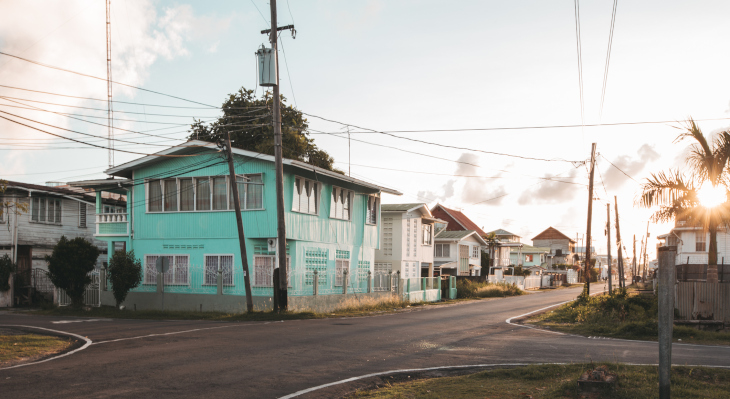Guyana: Inauguration of new president ends prolonged and bitter political standoff to control windfall oil revenues

Event
Mohamed Irfaan Ali, presidential candidate of the opposition People's Progressive Party/Civic (PPP/C), was sworn into office on 2 August 2020. It happened shortly after the Guyana Elections Commission (GECOM) announced the final election results in which the PPP/C won a one-seat majority in the National Assembly. The past year and a half has been a roller coaster for Guyanese politics. After a vote of no confidence in December 2018, elections were delayed for more than a year until 2 March 2020. After the elections, it took another 5 months to declare a winner as election fraud was claimed, votes were recounted and legal battles enacted. Finally, outgoing President David Granger relented, under pressure from other countries such as the USA and the UK, the former colonial power. Even after the inauguration of Ali, Granger continued to claim fraud and promised to challenge the outcome. Nevertheless, he asked supporters of his party National Unity (APNU) and the Alliance for Change (AFC), its coalition partner, to respect the decision.
Impact
The stakes were high for these elections. At issue was the control over recent windfall oil revenues: Guyana recently discovered it has one of the world's biggest reserves of oil in deep waters. This discovery could even put Guyana among the world's top oil producers in the medium term. ExxonMobil has begun production ahead of schedule at its offshore Liza field in December 2019, explaining why the country is expected to be one of the rare countries with positive real GDP growth projections this year. More specifically, the small nation is likely to be the fastest growing economy in the world (with an eye-boggling real GDP growth of 51.1% according to the World Bank in June 2020) despite the current relatively low international oil prices. Hence, in a few years, South America’s third poorest country will probably be one of the richest. The chance to control these oil revenues raised the bitter rivalry between the country’s ethnically divided politics of Indo-Guyanese (who primarily support the PPP/C) and Afro-Guyanese (who largely support the APNU-AFC coalition). Despite the relatively peaceful transition of power, sectarian tensions underpin ongoing risks to social stability. Furthermore, the government's response towards the ongoing covid-19 pandemic and the government's ability to direct the influx of oil revenues towards its preferred policies could lead to social unrest.
The inauguration is likely to be good news for Guyanese companies and people in general. Guyana’s prolonged political standoff prevented Granger’s government from spending the accumulating oil revenues and mobilising emergency funds to combat the covid-19 virus and the ensuing economic fallout. Therefore, the recent swearing-in of Ali´s government is likely to mitigate the economic pain of the pandemic, which is ripping through South America. An important question remains though: how will the small nation be able to tackle a potential Dutch disease. The PPP/C declared that it will dissolve the Natural Resource Fund set up by Granger’s government to manage the oil revenues. The Natural Resource Fund – though not flawless – was supposed to release the oil revenues into the economy at a rate that doesn´t lead to a rapid appreciation of the Guyanese dollar or overwhelm the capacity of Guyana’s weak institutions to spend it well. Currently, it is not clear what the new government will replace it with, or when.
The current events bode especially well for MLT political risk rating (6/7) and expropriation risk rating (5/7). Concerning MLT political risk, the narrowing of the current account deficit (from a very high 40% of GDP in 2019 to around 20% of GDP this year before further gradually reducing), the increase of current account receipts and the fall of external debt ratios in the medium term will improve the country´s economic fundamentals. With regard to expropriation risk, the risk of contract alteration surged amid the political standoff but is likely to decline in the coming months. A potential upgrade of both ratings will mainly depend on the policy direction of the new government and in particular its ability to stem social tension.
Analyst: Jolyn Debuysscher – J.Debuysscher@credendo.com